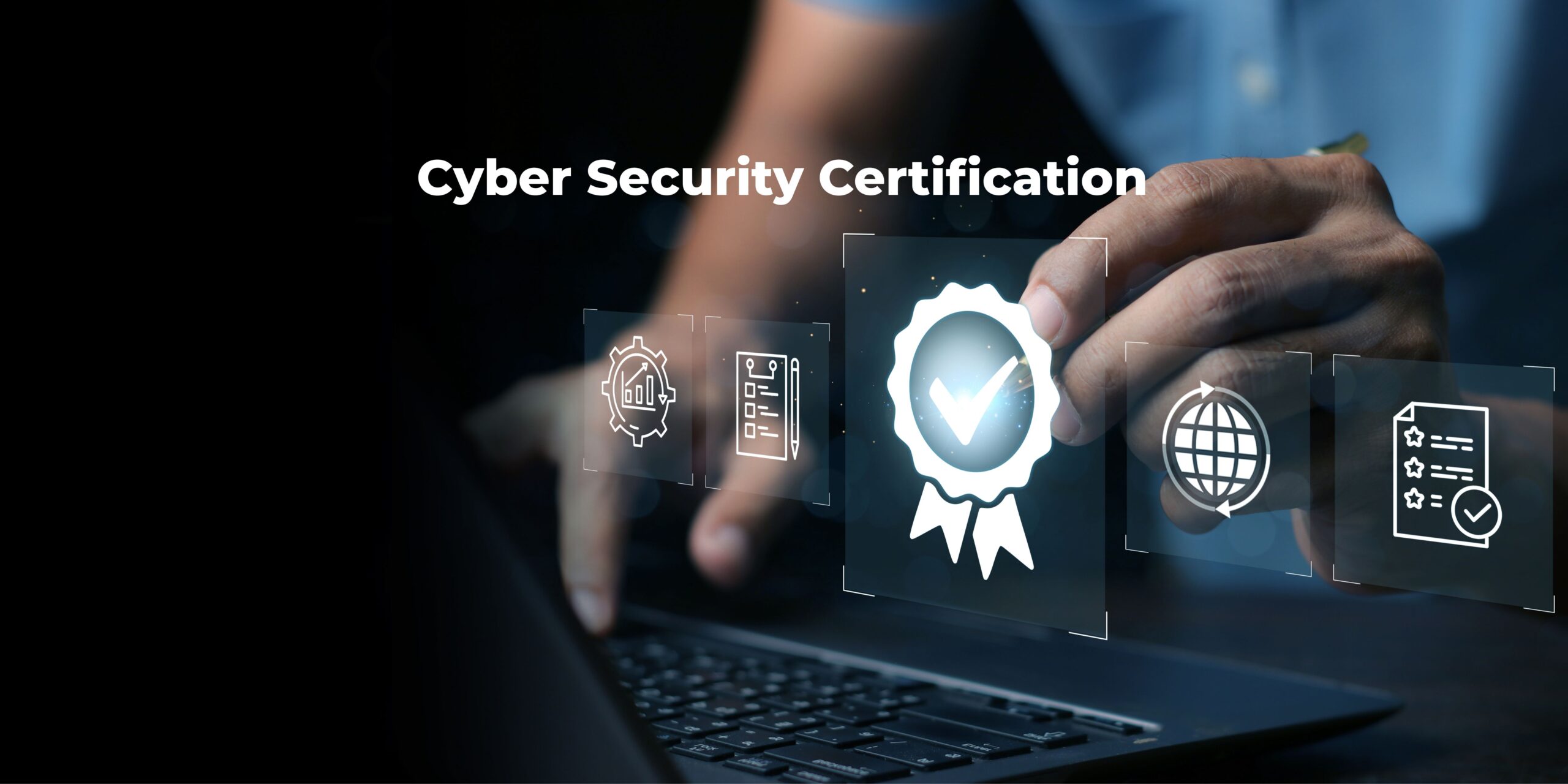In today’s digital age, cybersecurity is more important than ever. With cyber threats evolving at an unprecedented pace, organizations are in constant need of skilled professionals who can protect their sensitive data. If you’re looking to advance your career in cybersecurity, obtaining a cybersecurity certification can be a powerful way to demonstrate your expertise and commitment to the field. But with so many certifications available, how do you know which one is right for you?
In this guide, we’ll explore the top cybersecurity certifications, their benefits, and how to choose the one that aligns with your career goals.
1. Certified Information Systems Security Professional (CISSP)
Overview: CISSP is one of the most respected and globally recognized certifications in cybersecurity. Offered by ISC2, it covers a broad range of topics including security and risk management, asset security, and software development security.
Who is it for? This certification is ideal for experienced security practitioners, managers, and executives who are involved in designing, engineering, and managing an organization’s overall security posture.
Prerequisites: Minimum of five years of paid work experience in at least two of the eight CISSP Common Body of Knowledge (CBK).
Benefits:
- Recognized globally
- Demonstrates deep technical and managerial competence
- Opens doors to senior roles such as Chief Information Security Officer (CISO)
2. Certified Ethical Hacker (CEH)
Overview: Offered by the EC-Council, CEH focuses on the techniques and tools used by hackers to breach security systems. It trains professionals in ethical hacking techniques to help organizations identify and fix security vulnerabilities.
Who is it for? CEH is perfect for IT professionals interested in penetration testing, ethical hacking, and cybersecurity threat analysis.
Prerequisites: Two years of work experience in the Information Security domain is recommended, or completion of an official CEH training course.
Benefits:
- Hands-on experience in ethical hacking
- Provides knowledge of hacking tools and techniques
- High demand in roles such as penetration tester and vulnerability analyst
3. Certified Information Security Manager (CISM)
Overview: CISM, offered by ISACA, focuses on management more than technical aspects of cybersecurity. It covers topics like information risk management, governance, and incident response.
Who is it for? This certification is aimed at professionals who design and manage an enterprise’s information security program, such as IT managers and information security consultants.
Prerequisites: Five years of work experience in information security management, with at least three years in a management role.
Benefits:
- Emphasizes management skills
- Aligns with business goals and objectives
- Prepares professionals for leadership roles
4. Certified Information Systems Auditor (CISA)
Overview: Also offered by ISACA, CISA is designed for those who audit, control, monitor, and assess an organization’s information technology and business systems.
Who is it for? IT auditors, audit managers, consultants, and security professionals seeking to validate their expertise in auditing.
Prerequisites: Five years of work experience in information systems auditing, control, or security.
Benefits:
- Recognized globally as a standard for audit control
- Enhances career prospects in IT audit, control, and assurance
- Aligns with a growing demand for auditing roles
5. CompTIA Security+
Overview: CompTIA Security+ is a widely recognized entry-level certification that covers fundamental cybersecurity skills. It addresses the basic principles of network security, risk management, and cryptography.
Who is it for? Security+ is ideal for beginners or IT professionals looking to pivot into cybersecurity.
Prerequisites: No formal prerequisites, though two years of IT administration experience with a focus on security is recommended.
Benefits:
- Vendor-neutral certification
- Covers a broad range of security concepts
- Serves as a foundation for more advanced certifications
How to Choose the Right Certification
Choosing the right cybersecurity certification depends on where you are in your career and where you want to go:
- For Beginners: If you’re new to cybersecurity, starting with a foundational certification like CompTIA Security+ can give you a solid grounding.
- For Technical Experts: If you have a few years of experience and want to deepen your technical skills, CEH or CISSP might be the right choice.
- For Managers: If you’re aiming for a leadership or management role, consider CISM or CISSP.
- For Auditors: If your focus is on auditing and compliance, CISA is the go-to certification.
Conclusion
In the rapidly evolving field of cybersecurity, certifications are more than just credentials; they are a testament to your knowledge, skills, and dedication. Whether you’re just starting or looking to advance to a senior position, there’s a certification that can help you achieve your career goals. Take the time to assess your current skills, career aspirations, and the specific requirements of the certifications you’re considering. With the right certification, you can open new doors in the exciting world of cybersecurity.
Frequently Asked Questions (FAQs) About Cybersecurity Certifications
1. What is the best cybersecurity certification for beginners?
For beginners, the CompTIA Security+ certification is often recommended. It covers fundamental cybersecurity concepts and provides a strong foundation for more advanced certifications.
2. How long does it take to earn a cybersecurity certification?
The time required varies depending on the certification and your prior experience. For example:
- CompTIA Security+: Typically 2-3 months of study.
- CISSP: Often requires 3-6 months due to its complexity.
- CEH: Usually takes 3-4 months, especially if you are new to ethical hacking.
3. Do I need work experience before pursuing a cybersecurity certification?
Some certifications, like CISSP and CISM, require several years of relevant work experience. Others, like CompTIA Security+, have no formal prerequisites, making them suitable for those new to the field.
4. How much does it cost to get certified in cybersecurity?
Certification costs vary:
- CompTIA Security+: Around $370.
- CISSP: Approximately $749.
- CEH: Around $1,199.
- CISM: Around $575 for ISACA members, $760 for non-members.
These fees typically cover the exam only and do not include study materials or training courses.
5. Can I study for cybersecurity certifications on my own?
Yes, many professionals study on their own using online resources, books, and practice exams. However, some prefer structured learning through online courses or boot camps, which can provide additional support and hands-on practice.
6. What is the most recognized cybersecurity certification globally?
The CISSP (Certified Information Systems Security Professional) is one of the most recognized and respected certifications worldwide. It is often a requirement for senior roles in cybersecurity.
7. How do I maintain my cybersecurity certification?
Most certifications require continuing education to maintain:
- CISSP: Requires earning Continuing Professional Education (CPE) credits and paying an annual maintenance fee.
- CEH: Requires earning EC-Council Continuing Education (ECE) credits and paying an annual fee.
- CompTIA Security+: Requires earning Continuing Education Units (CEUs) and paying a renewal fee every three years.
8. Which certification is best for ethical hacking?
The Certified Ethical Hacker (CEH) is specifically designed for those interested in ethical hacking and penetration testing. It is widely recognized in the industry.
9. Are online cybersecurity certifications credible?
Yes, many credible institutions offer online certification programs. Ensure the certification is recognized by industry standards and that it comes from a reputable organization like CompTIA, (ISC)², or ISACA.
10. What career opportunities can cybersecurity certifications open up?
Cybersecurity certifications can lead to various roles, including:
- Security Analyst
- Penetration Tester (Ethical Hacker)
- Information Security Manager
- IT Auditor
- Chief Information Security Officer (CISO)
Certifications can also lead to higher salaries and more advanced positions within organizations.
Learn more about cyber security here







